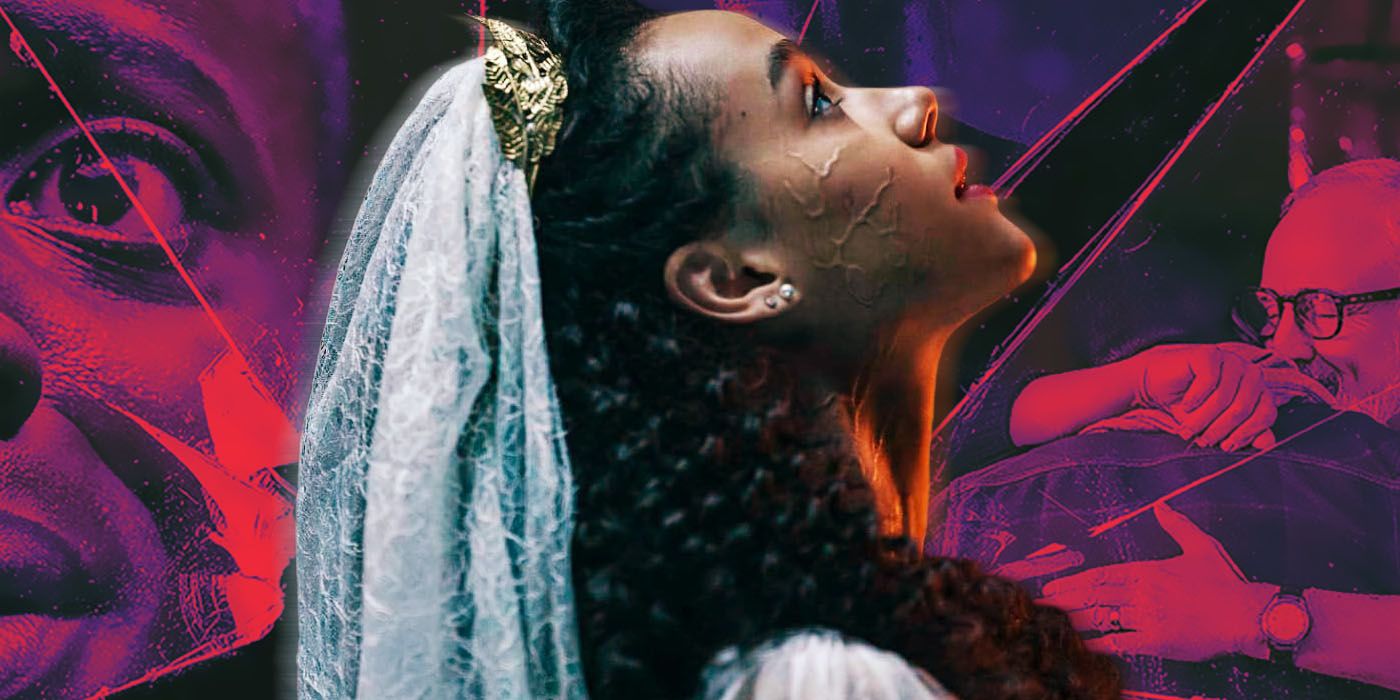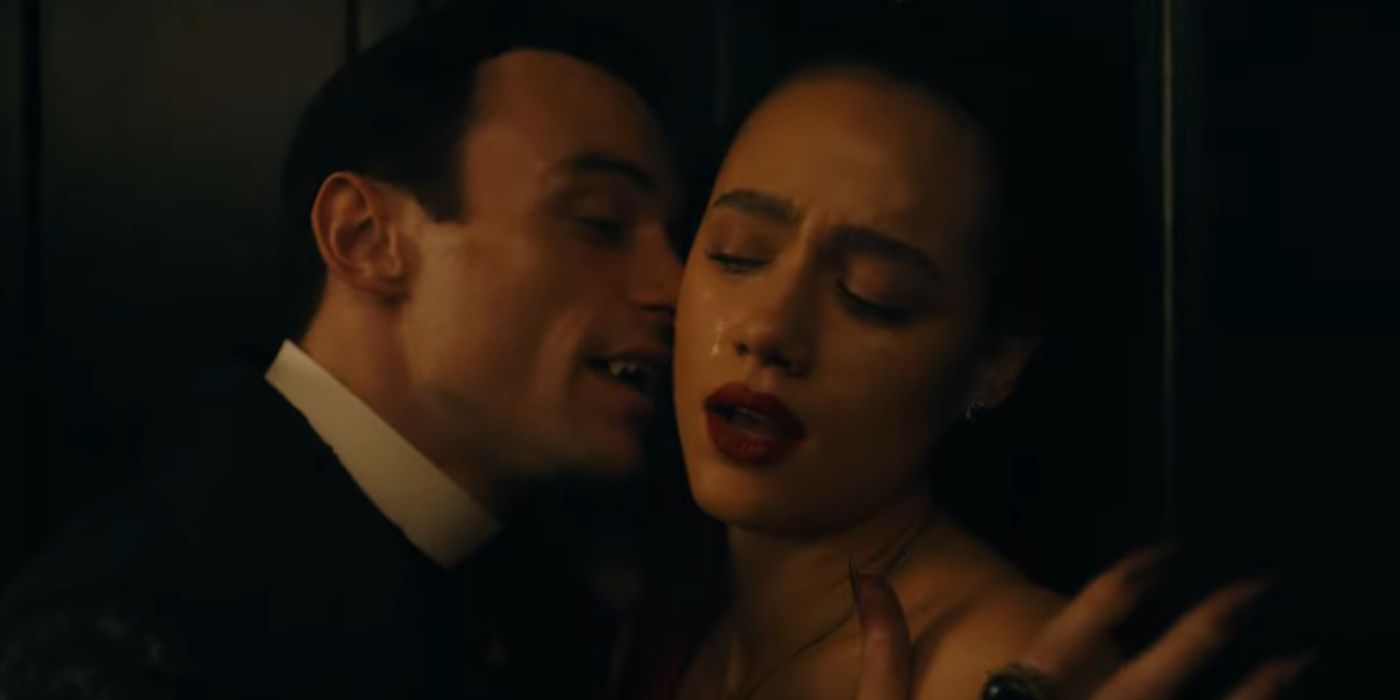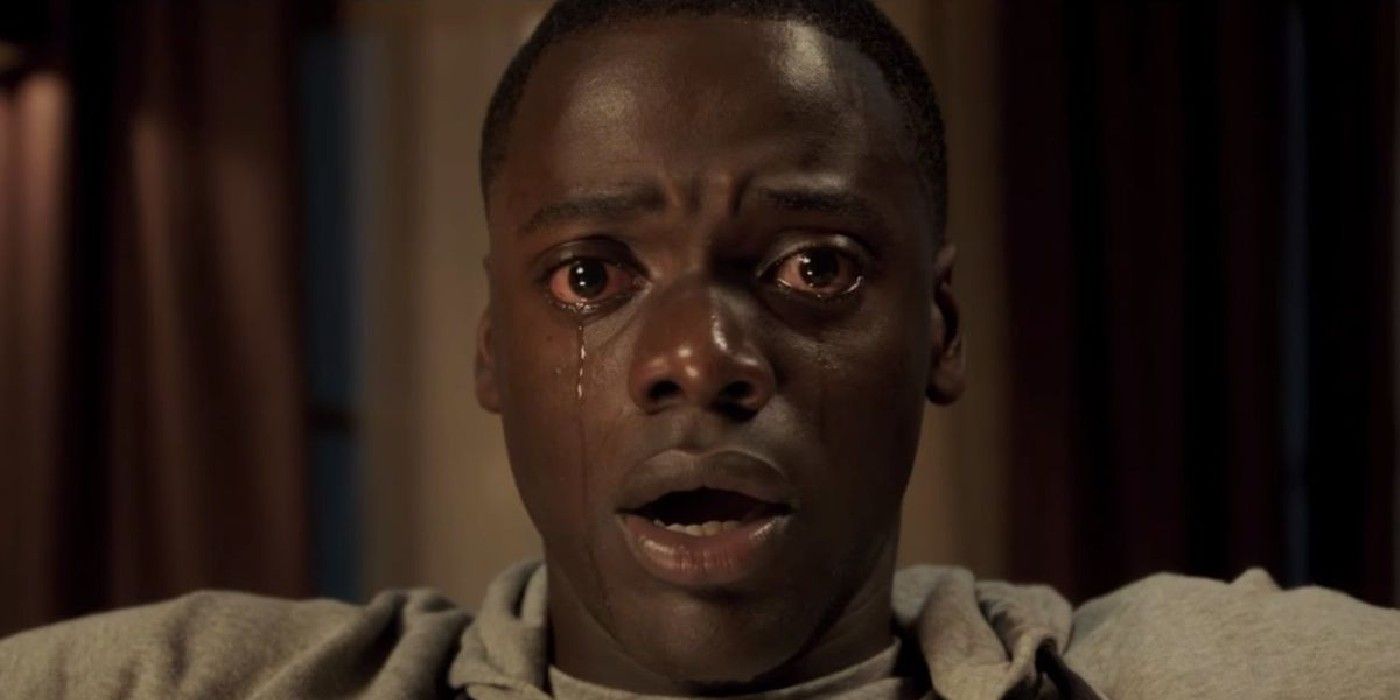The following contains spoilers for Sony's The Invitation, now playing in theaters.
A not uncommon flaw of the horror genre, especially in film, is a reliance on protagonists being foolish, naive or illogical. These characters end up making silly mistakes to help advance the plot and infamously choose poorly throughout the story to keep the progression building. But The Invitation takes cues from the modern instant-classic Jordan Peele film Get Out and infuses its protagonist with similar enough (but distinct) edges that it harkens to some of the same subversive strengths that elevated Get Out.
At the beginning of The Invitation, Evie (Nathalie Emmanuel) takes a blood-based DNA test and finds out about an unexpected family connection to a seemingly sweet-natured Englishman named Oliver (Hugh Skinner). Hoping to introduce her to the rest of the family, Oliver extends an invitation to join them for an upcoming wedding, and Evie reluctantly agrees to attend the ceremony. Naturally, the entire situation is a trap -- Evie is the last living descendant of a woman promised to Dracula, aka Walt (Thomas Doherty), and therefore has been lured to the remote manor so she can wed the vampire instead. Evie only realizes this shortly before the ceremony in question, and although she's briefly infected with the curse, she resists it long enough to fight back against the vampires and even seemingly kill Walt.
Even before the final act, though, Evie establishes herself as a capable and crafty survivor, something often lost upon protagonists in these kinds of films. The Invitation, at many points, embraces a clever approach to horror films, specifically one that's clever enough to catch the kind of threats that horror protagonists don't usually catch. Evie is quick to arrange plans with her best friend Grace (Courtney Taylor), who demands to be informed of Evie's whereabouts at all times. In many ways, Grace feels akin to Rod (Lil Rel Howery) from Get Out, a loyal friend whose advice helps spur the hero into action.
In all honesty, Get Out seems like something of a blueprint for The Invitation, which isn't a bad thing. Both films focus on POC protagonists -- Emmanuel's Evie and Daniel Kaluuya's Chris -- trying to survive an overwhelming Upper-Crust White setting. Both of them are more or less "invited" to join these respective worlds but lose themselves in the process. Both also ultimately revolt against the systems built to entrap them. Chris was able to fight his way to freedom before he could lose control of his body and be trapped in the Sunken Place, while Evie is able to fight back against the vampires and ultimately even kill Walt, seemingly freeing herself of the curse. Their best friends both even come to their aid -- with Rod arriving to help Chris escape and Evie recruiting Grace to help her hunt down people like Oliver for their culpability in what happened to her.
The Invitation is a far more feminist-focused film than Get Out, but both movies center around the constraints of the old guard trying to force a new, progressive, more diverse generation to adhere to their rules and standards. Both films are triumphs of the rebellious and defiant spirit needed to break those roles, and both end on positive notes -- their protagonists are free and able to continue changing the world for the better. Comparing The Invitation to Get Out is a compliment, with the former finding a unique way to take the powerful energy of the latter, infuse it with specific female-driven energy, and point it directly at one of the overarching icons of horror. The fact that the film gets to turn one of Dracula's prospective brides into his killer speaks to the agency and authority horror films like these infuse into their protagonists. It is a solid development for the genre.
To see how it follows in Get Out's footsteps, The Invitation is in theaters now.



